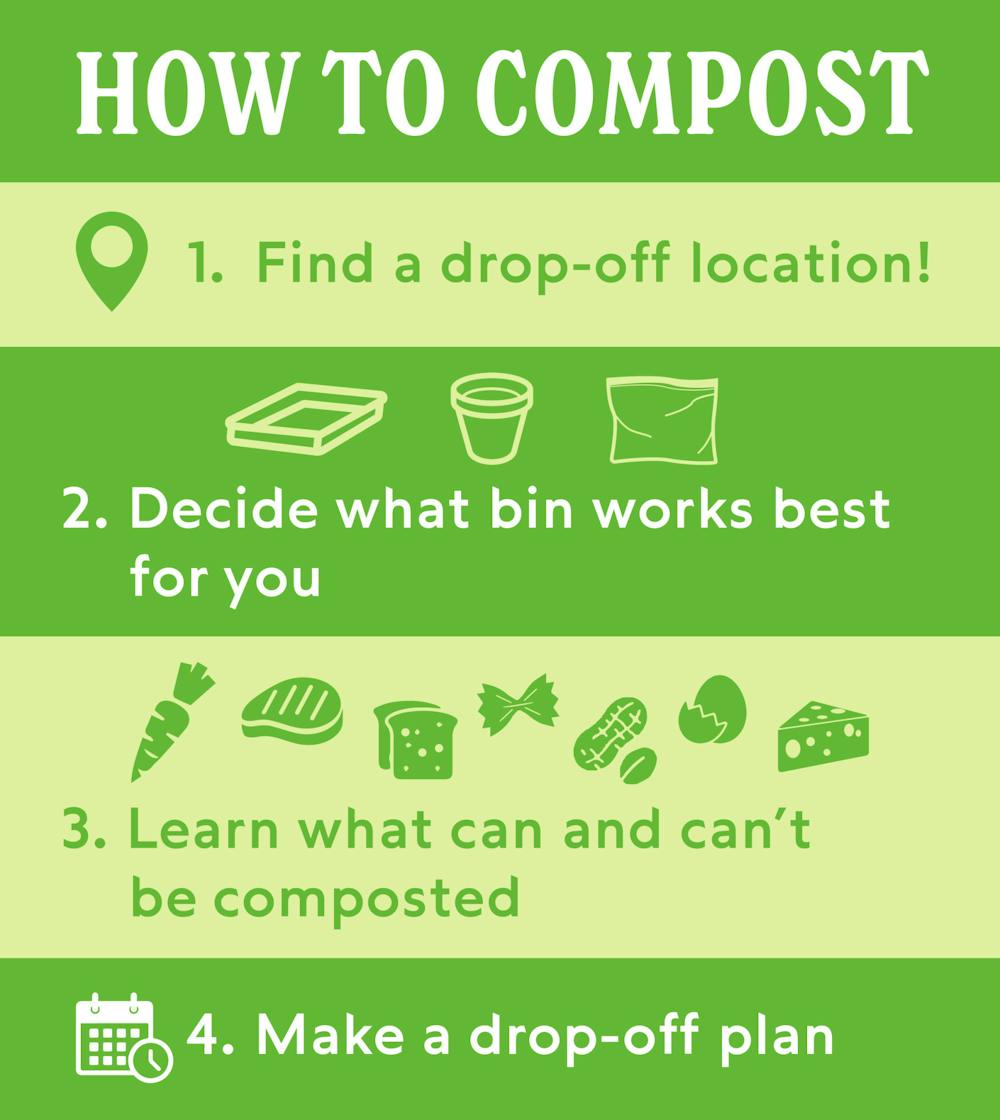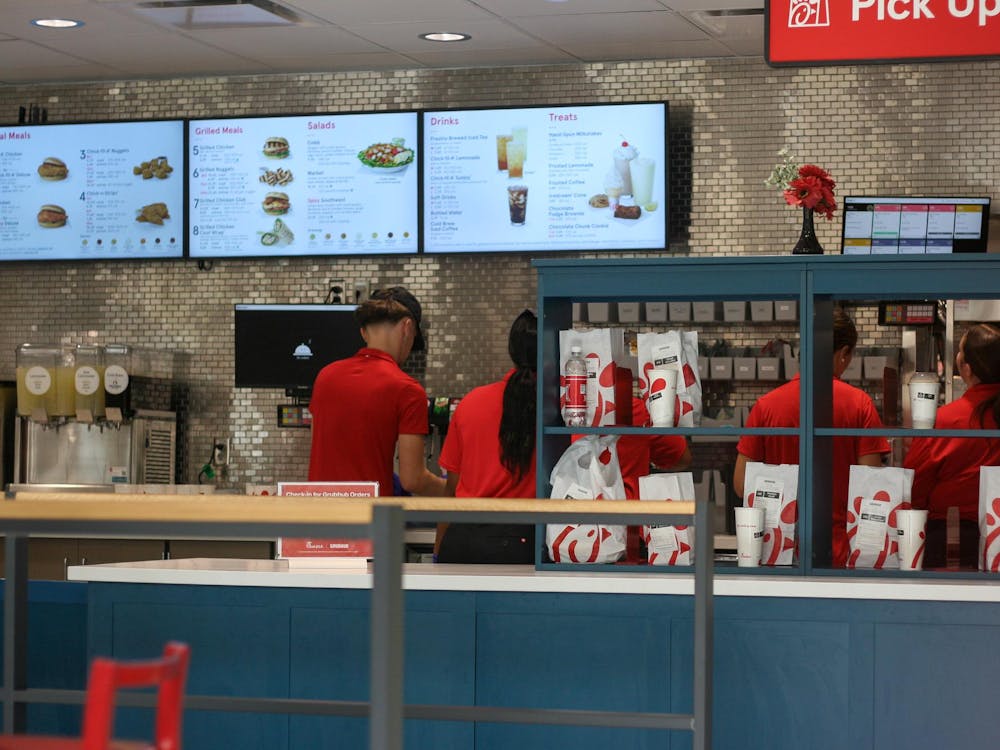So, you’re thinking about collecting household organic waste? In my last article, I reviewed the importance of watching your waste and how composting is vital to the slowing of greenhouse gas emissions. As a student, parent or professor, you can take easy action in properly disposing of organic waste.
First, you’ll need to find a drop-off location near you. The City of Oxford offers a drop-off location, accessible 24/7, in the parking lot at 945 S. Main St. Composting locations are also widely available across Ohio, and the website Litterless provides a comprehensive list of waste drop-off locations in every state.
Next, you will need to figure out which collection bin works best for you. Options include a counter top bin, a terracotta pot or even a bag to throw the scraps in the freezer. Anything can be used, but to avoid potential odors, you can buy a $15-30 bucket online or at your local zero waste shop. The New York Times offers a selection of their favorites. You will also need biodegradable liners for your bin, as normal trash bags cannot be composted.
Once you’ve got your drop off location and bin supplies, learn exactly what can and what can’t be composted. Here is a common list of kitchen items that can go in a compost bin:
Fruits and vegetable scraps (with stickers, ties and wrappers removed)
Meat, fish and bones
Bread, flour and pasta
Eggs and eggshells
Nuts and shells
Dairy products
Oils, fats, dressings and condiments
Spices
BPI Compostable Materials and Products (look for the label on the container)
Don’t forget to teach your roommates or household members how to properly compost. You can print a list or directions to hang in the kitchen for others to understand what can and can’t go in your food scraps bin.
Lastly, make sure you have a plan. If you don’t have curbside service, dedicate a time once or twice a week to dump your bin at a drop-off location. It can be on your way to class or the grocery store. A consistent time will make organic waste recycling a part of your weekly routine rather than an inconvenience.
Food scrap collection often sounds like a hassle at first, but in reality, it is a simple way to reduce your carbon footprint and greenhouse gas emissions. If you’re able to, take advantage of your local services and do good for the planet.




